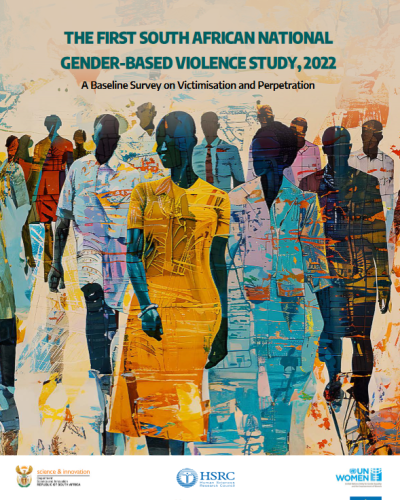THE FIRST SOUTH AFRICAN NATIONAL GENDER-BASED VIOLENCE STUDY, 2022

Introduction: This report presents the findings of the first ‘fit-for-purpose’ national study on the prevalence of gender-based violence (GBV) in all nine provinces of South Africa. It outlines the prevalence of physical, sexual, emotional, and economic violence, and psychological abuse such as controlling behaviours among youth and adults 18 years and older. It also examines the perpetration of violence by men against their female partners and the underlying role of gender norms in driving GBV. The results provide new evidence and 1. 3. To describe the prevalence and patterns of experiences of physical, sexual, emotional and economic GBV among women from all provinces in South Africa 2. To describe the prevalence and patterns of perpetration of physical, sexual, emotional and economic GBV among men from all provinces in South Africa To determine factors associated with GBV victimisation and perpetration, including: 3.1. confirmation of the patterns of violence against women in the country. The study findings contribute to understanding the life course of victimisation and perpetration in South Africa.
The study also serves as a vital source of information for government, researchers, academics, civil society, developmental partners, policy makers, and practitioners. It represents a step forward and provides empirical evidence about GBV in South Africa. The data collected are an important source for reporting and tracking progress in addressing GBV in South Africa, as outlined in the National Strategic Plan (NSP) on Gender-Based Violence and Femicide (GBVF). The study allows the country to report prevalence estimates that are comparable to other countries that have adopted the World Health Organization (WHO) globally recognised approach for measuring GBV.
South Africa remains a society profoundly marked by violence and continues to grapple with the enduring effects of decades of institutionalised racism, sexism, exclusion, structural violence, and other factors that have persistently undermined human development and positive social cohesion.1 The country contends with some of the globe’s highest homicide data and some suggest the country has one of the highest rates of GBV, encompassing intimate femicide, rape, and intimate partner violence (IPV).2,3 The President of South Africa acknowledged that GBV is a severe socio-economic problem, which is fundamentally rooted in unequal power dynamics between









